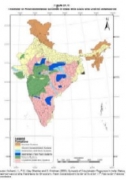/regions/political
Political
Water security vs national security published in Third Concept September 2010 : Countries that share a river face a higher probability of engaging in military disputes
Posted on 28 Sep, 2010 10:15 AMThere has been growing public and policy preoccupation in recent years with potential climate impacts on water security in the wake of the worsening risk of global warming. In 1991, then–UN secretary general Boutros Boutros-Ghali pronounced that “the next war will be fought over water, not politics.” In 2001, Kofi Annan warned that “fierce competition for fresh water may well become a source of conflict and wars in the future.” And present UN secretary general Ban Ki-Moon has argued that the ongoing Darfur crisis grew at least in part from desertification, ecological degradation, and a scarcity of resources, foremost among them water. Apart from this chorus of concern, many policy scholars have asserted that, as population growth and economic development raise pressures on demand and environmental pressures degrade supplies, resource scarcities could precipitate violent international conflicts, with shared rivers an especially dangerous flashpoint.
Fluid Mechanics, Hydraulics, Hydrology and Flow - A Civil Engineering Course under the National Programme on Technology Enhanced Learning
Posted on 28 Sep, 2010 08:04 AMThis Civil Engineering Course under the National Programme on Technology Enhanced Learning (NPTEL) on the broad subject of Fluid Mechanics, Hydraulics, Hydrology and Flow is being carried out by the Indian Institute of Technology’s and Indian Institute of Science, Bangalore as a collaborative project supported by the Ministry of Human Resource Development (Government of India) to enhance the quality of engineering education in the country, by developing curriculum based video and web courses. In these web based lectures, the authors have developed the subject in detail and in stages in a student-friendly manner. The broad group of Fluid Mechanics, Hydraulics, Hydrology and Flow is structured into modules on the following topics:
Solids, Materials and their Mechanics – A Civil Engineering Course under the National Programme on Technology Enhanced Learning
Posted on 27 Sep, 2010 09:31 PMThis Civil Engineering Course under the National Programme on Technology Enhanced Learning (NPTEL) on the broad subject of Solids, Materials and their Mechanics has been developed by Indian Institute of Technology’s and the Indian Institute of Science, Bangalore as a collaborative project supported by the Ministry of Human Resource Development (Government of India) to enhance the quality of engineering education in the country, by developing curriculum based video and web courses. In these web based lectures, the authors have developed the subject in detail and in stages in a student-friendly manner.
Water law and policy in India - Capacity building workshop for women in Chitrakoot, Uttar Pradesh
Posted on 27 Sep, 2010 03:30 PMWater law and policy framework in India has undergone significant changes in the last couple decades. Given the complex nature of the law and policy framework, the awareness among common people is minimal or nil. This is an irony given the fact that recent law and policy changes call for ‘users’ to be as a key player in the management and development of water.
Good water supply and sanitation is a major input for good health of population - India Health Report 2010
Posted on 27 Sep, 2010 12:49 PM Last week saw the publication by BS Books of the India Health Report 2010 (henceforth referred to as IHR10), edited (and mostly written) by Ajay Mahal, Bibek Debroy and Laveesh Bhandari. For anyone interested in India’s health status, access to health care and medicines, emerging health problems, the infrastructure of health services, medical ethics, health-care financing, government programmes and regulations and key issues in health sector reform, this 138-page report is an excellent introduction-cum-survey. Here I provide a highly selective summary to whet the appetite of readers to peruse the full report.
Last week saw the publication by BS Books of the India Health Report 2010 (henceforth referred to as IHR10), edited (and mostly written) by Ajay Mahal, Bibek Debroy and Laveesh Bhandari. For anyone interested in India’s health status, access to health care and medicines, emerging health problems, the infrastructure of health services, medical ethics, health-care financing, government programmes and regulations and key issues in health sector reform, this 138-page report is an excellent introduction-cum-survey. Here I provide a highly selective summary to whet the appetite of readers to peruse the full report.
Water plumbing sanitation and health; Issues and Challenges - A trans disciplinary approach, Bangalore University, Bangalore
Posted on 27 Sep, 2010 10:59 AMInternational Conference
Theme: “Water Plumbing sanitation & Health; Issues & Challenges-A trans disciplinary approach”
Water resources - Mid-term appraisal of the eleventh five year plan - Report by the Planning Commission
Posted on 25 Sep, 2010 04:57 PM The Eleventh Plan (2007-08 to 2011-12) sought to build on the gains achieved in the Tenth Plan and shift the economy to a path of faster and more inclusive growth. The Mid Term Appraisal (MTA) report for the Eleventh Five Year Plan 2007-2012 by the Planning Commission reviews the experience in the first three years of the Plan and seeks to identify areas where corrective steps may be needed.
The Eleventh Plan (2007-08 to 2011-12) sought to build on the gains achieved in the Tenth Plan and shift the economy to a path of faster and more inclusive growth. The Mid Term Appraisal (MTA) report for the Eleventh Five Year Plan 2007-2012 by the Planning Commission reviews the experience in the first three years of the Plan and seeks to identify areas where corrective steps may be needed.
The Eleventh Plan recognises the special challenges of water resources management facing India and the likelihood that these will grow over time due to the rising population and industrialisation.
This chapter discusses the major features of the water problem facing the country followed by a review of the performance of the schemes dealing with water in the Eleventh Plan. The chapter also proposes an alternative approach to be elaborated into an operational strategy to be implemented in the Twelfth Five Year Plan.
Case studies on water quality - A presentation by ACWADAM
Posted on 25 Sep, 2010 10:19 AMThis presentation by ACWADAM deals with monitoring of water quality in a watershed. It describes the process of going about conducting a hydrogeological study of the watershed, right from the study of the basic geology to the importance of the quality of groundwater in the watershed. The main hydrogeological provinces of India are described - (a) Hard rock regimes: Crystalline rocks, Volcanic (Deccan basalt), (b) Alluvial regimes, and (c) Consolidated sedimentary regimes: Soft sedimentary, Hard sedimentary.
Aquifers: The hosts of groundwater – A presentation by ACWADAM
Posted on 25 Sep, 2010 08:44 AMThis presentation by ACWADAM on aquifers states that a systematic approach to groundwater studies is required to understand how water exists in each type of rock or sediment for which hydrogeological mapping of aquifers becomes significant in every watershed programme. The necessity of studying the scientific aspects of groundwater such as its properties and distribution below the earth’s surface is highlighted.